



What is Private Mortgage Insurance (PMI)?
Private Mortgage Insurance (PMI) protects the lender in case you default on your mortgage. Sometimes you may
need to pay up to 1-year's worth of PMI premiums at closing which can cost several hundred dollars. The best way
to avoid this extra expense is to make a 20% down payment, or ask about other loan program options.
How Does Private Mortgage Insurance (PMI) Work?
PMI companies write insurance policies to protect approximately the top 20% of the mortgage against default.
This depends on the lender's and investor's requirements, the loan-to-value ratio, and the type of loan program
involved. Should a default occur the lender will sell the property to liquidate the debt, and is reimbursed by the
PMI company for any remaining amount up to the policy value.
Could Obtaining Private Mortgage Insurance (PMI) Help Me Qualify for a Larger Loan?
Yes, it will help you obtain a larger loan, here’s why. Let's say that you are a family with $42,000 Annual Gross
Income and monthly revolving debts of $800 for car payment and credit cards, and you have $10,000 for your
down payment and closing costs on a 7%-interest mortgage. Without PMI the maximum price you can afford is
$44,600, but with PMI covering the lender's risk you now can buy a $62,300 house. PMI has afforded you 39%
more house. (these percentages can change, please check with your loan officers)
How Much Does Private Mortgage Insurance (PMI) Cost?
PMI costs vary from insurer to insurer, and from plan to plan. Example: A highly leveraged adjustable-rate
mortgage requires the borrower to pay a higher premium to get coverage. Buyers with a 5% down payment can
expect to pay a premium of approximately 0.78% times the annual loan amount, $92.67 monthly for a $150,000
purchase price. But, the PMI premium would drop to 0.52% times the annual amount, $58.50 monthly if a 10%
down payment was made.
How is Private Mortgage Insurance Paid?
PMI fees can be paid in many ways depending on the company used:
Borrowers can choose to pay the 1-years premium at closing, and then an annual renewal premium is collected
monthly as part of the house payment.
Borrowers can choose to pay no premium at closing, but add on a slightly higher premium monthly to the
principal, interest, tax, and insurance payment.
Borrowers who want to sidestep paying PMI at closing but don't want to increase their monthly house payment
can finance a lump-sum PMI premium into their loan. Should the PMI be canceled before the loan term expires
through refinancing, paying off the loan, or removal by the loan provider, the borrower may obtain the rebate of
the premium.
How Does the Buyer Apply for PMI?
Typically the buyer covers the cost of PMI, but the lender is the PMI company's client and shops for insurance on
behalf of the borrower. Lenders usually deal with only a few PMI companies because they know the guidelines for
those insurers. This can be a problem when one of the lender's prime companies turns down a loan because the
borrower doesn’t fit its risk parameters. A lender might follow suit and deny the loan application without
consulting a second PMI company which could leave all parties in an undesirable position. The lender has the
difficult task of being fair to the borrower while shopping for the most effective way to lessen liability.
What is the History of Private Mortgage Insurance (PMI)?
The Private Mortgage Insurance industry originated in the 1950's with the first large carrier, Mortgage Guaranty
Insurance Corporation (MGIC). They were referred to as "magic" as these early PMI methods were deemed to
magically assist in getting lender approval on otherwise unacceptable loan packages. Today there are 8 PMI
underwriting companies in the United States.
Cancellation of Private Mortgage Insurance (PMI)
The Homeowners Protection Act of 1998 established rules for automatic termination and borrower cancellation of
Private Mortgage Insurance (PMI) for home mortgages. These protections apply to certain home mortgages
signed on or after July 29, 1999 for the home purchase, initial construction, or refinance of a single-family home. It
does not apply to government-insured FHA or VA loans, or to loans with lender-paid PMI. With certain exceptions
(home mortgages signed on or after July 29, 1999) your PMI must be terminated automatically when 22% of the
equity of your home is reached, based on the original property value and if your mortgage payments are current.
It can also be canceled at your request with certain exceptions, when you reach 20% equity, again based on the
original property value, if your mortgage payments are current.
Exceptions:
If your loan is "high risk"
You have not been current on your payments within the year prior to termination time or cancellation
If you have other liens on your property
Ask your Loan Officer for more information about these requirements.
PMI-Mortgage Insurance








© 2007 - 2023 1st Florida Lending Corp. - All rights reserved I Privacy Policy I Terms of Use I



- MORTGAGE GLOSSARY OF TERMS
- MORTGAGE CALCULATOR
- LOAN PROGRAMS
- USDA LOAN INFORMATION
- NON-QM MORTGAGE
- PRE-APPROVAL DOCUMENT-CHECKLIST
- APPRAISALS
- LEARN ABOUT CREDIT
- REPAIR YOUR CREDIT
- CLOSING COST
- REFINANCING YOUR LOAN
- MORTGAGE CREDIT EVENTS
- PMI-MORTGAGE INSURANCE
- FORECLOSURE INFORMATION
- CONDO PURCHASE WARNINGS
- THE LOAN PRE-APPROVAL PROCESS


- FHA LOANS - NO DOWN PAYMENT
- BANK STATEMENT LOANS - 90% LTV
- JUMBO LOANS - 95% LTV
- 99% LTV CONVENTIONAL LOAN
- PROGRESSIVE REPAYMENT MORTGAGE
- CONTRUCTION LOANS
- INVESTMENT PROPERTY LOANS - 85% LTV
- STATED MORTGAGE FOR PRIMARY -SECOND HOMES
- NO DOC FUNDING - 6 PROGRAMS
- FOREIGN NATIONAL LOANS
- ASSET BASED MORTGAGE LOAN
- FIX AND FLIP BRIDGE LOANS
- COMMERCIAL PROPERTY LOANS
- VOE MORTGAGE LOANS
- ITIN TAX ID LOAN
- USDA LOAN
- VA LOANS 100% LTV














